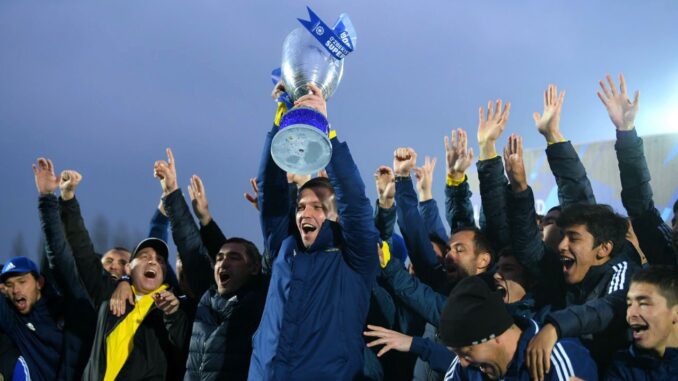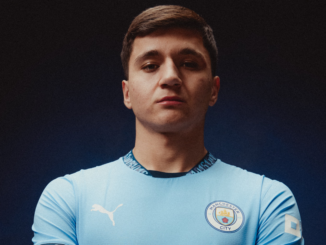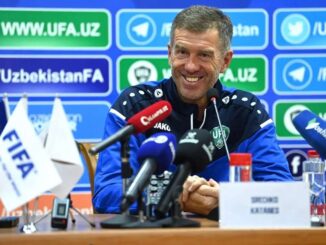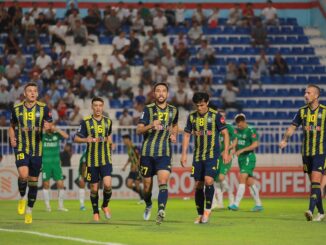
The sight of Pakhtakor lifting yet another piece of silverware this past weekend, which has become increasingly commonplace in Uzbek football of late, was indeed a familiar one.
At the turn of a new domestic Super League season, however, the once all consuming Pakhtakor’s Super Cup triumph may well have meant more than its basic face value.
The Tashkent giants have long become synonymous with the nation’s football identity stretching over the last two decades; for all it’s good – their dominance at home – and it’s bad – their regular struggles in Asia – Pakhtakor have hit peak form over the last two years.
From domestic treble winners, and record breaking Super League champions in 2019, the Cotton Pickers followed up with a fitting killer blow, another title alongside a first appearance in the knockouts (making it through to the quarter finals) of the Champions League since 2010.
It was the defining point of their recent history; a period of dominance that shrugged off rare naivety, honed with former Ajax and Rangers winger Shota Arveladze at the managerial helm.
Reaching the pinnacle of any Uzbek football achievement in over a decade, the Georgian duly sailed off into the sunset at the end of last season as a legend, but leaving behind a team in transition.
The transfer market, most pertinently felt in Asia has slowed considerably amid the global COVID pandemic, with clubs favouring cheaper low risk imports over big spending of recent times.
Uzbek football, and Pakhtakor in particular, were thus in prime position in providing low cost, high calibre players at the right moment in time.
Leading Uzbek domestic goalscorer Igor Sergeev moved to Kazakhstan, creative winger Jaloliddin Masharipov joined Shabab Al-Ahli Dubai, followed by holding midfielder Odiljon Hamrobekov last week, while Dostonbek Khamdamov has also moved to the Emirates joining Hatta.
With their head coach and now four key starters heading out of Tashkent, a transition period is expected. For a club that so comfortably won the title the last two seasons (by 20 points in 2019, and by 12 last term), how rocky that period will be is understandably up for debate.
Stepping into the breach, Arveladze’s former number two, Dutchman Pieter Huistra, has taken the job, somewhat surprisingly ahead of potentially more suited candidates. When domestic dominance is the minimum benchmark, it’s no mean feat to be taking the reins in such challenging and changing times.
A debut Super Cup victory won’t have done him any harm then.
Pakhtakor, bizarrely, have failed to clinch this very piece of silverware before in their history, a mixture of cursed luck (they’ve failed in their three other attempts) and the competition’s sporadic scheduling. The most unexpected of anomalies was efficiently put to bed on Saturday.
For all the talk pre-match of change and transition, facing last season’s runners up Nasaf Qarshi, the manner of Pakhtakor’s victory was familiar to say the least.
Flying Uzbek wing back Farrukh Sayfiev, experiencing a renaissance for club and country of late, put in yet another fine performance, providing the winning delivery for giant Serbian striker Dragan Ceran to clinch victory, continuing on from his golden boot form (44 league goals in total) accrued over the previous two seasons.
Ceran remains a pivotal figure to Pakhtakor’s game plan and title retention hopes; a notch above any in terms of effectiveness and guile, his commitment to the coming season alone reaffirms Pakhtakor as clear favourites once again this term.
The return to domestic football of enigmatic winger Sardor Rashidov alongside the shrewd acquisition of Azizbek Turgunboev from Navbahor, makes it difficult to argue that they haven’t replaced like for like in terms of attacking quality, despite a noticeably changeable setup.
The lack of Sergeev as the main focal point of the side’s attack will be nullified somewhat by Swiss striker Eren Derdiyok, who stays on for a second season, after improving at the back end of 2020.
While their play lacked the typical swagger and verve we’ve grown accustomed to from Arveladze’s side over the last few years, the unwritten “Pakhtakor factor” that accompanies them in any given moment continues to bear heavy over any domestic opponent.
The chasing pack then, however far back they start, are a mixed bag.
In the main, financial instability has been the typical mitigating point behind any sustained threat to Pakhtakor’s crown, and that similarly will shake things up for the new season.
Nasaf were the best of the rest last campaign, breathing life into the league with a youth first approach that drew plenty of plaudits. Inevitably the new campaign brings with it its difficulties, having their squad stripped of their bright young things that narrowed the gap at the top so impressively last term.
Of those who remain playmaker Oybek Bozorov will take on the lions share of the attacking responsibility, while the impressive young keeper Abduvohid Nematov should have more opportunities in the limelight with less ample protection in front of him.
Another unfamiliar name at the top of the tree last term, the unromantically named AGMK, provide a more functional foe.
Built sturdily on the tuition of former national team coach and legendary midfielder Mirjalol Qosimov, the defence first approach of the club, forever in the shadows of their ownership bigger brother Pakhtakor, will put them in the mix, but rarely sustain a tangible threat to the crown.
The glamour then will come inevitably from elsewhere in the capital; namely in the reemergence of Lokomotiv Tashkent. Despite some blossoming attacking personnel on paper, the three time champions between 2016-2018 were woefully off the pace last year, and have since rebuilt with the best transfer window of any domestic outfit.
Incomings including all action national team midfielder Sanjar Kodirkulov, Spanish centre back Diego Bardanca and diminutive playmaker Javokhir Sidikov, bolster a squad that should push Lokomotiv up the table at the very least.
New Portuguese coach Michael Siqueira is an unknown outside of his native home land, but could he pull off a shock in contesting for honours immediately this year?
Elsewhere, the added frugality of former big spenders Bunyodkor will see them struggle again despite their young squad being led expertly by national team coach Vadim Abramov. The now local government owned capital club have just lost too much star power and resource to make an impact this season.
The same can be said for provincial Navbahor Namangan. One of the most fervently supported teams outside Tashkent, the loss of the aforementioned Turgunboev alongside Russian coach Andrei Kanchelskis has set them back a step or two. The emergence of Tajik youngster Ehson Panjshanbe offers a glimmer of hope.
The real excitement in the off-season transfer window arguably comes at the other end of the table.
Relegation playoff winners Andijon have gone through a branding makeover, whilst bringing in Kyrgyz national team captain Edgar Bernhardt and intriguingly 18-year-old phenomenon Jasurbek Jaloliddinov after his failed move to Russia.
Newcomers Turan, fresh off their Pro League triumph last season, offer the spark to the early season media circus. Less than five years old, their ascension has been spectacular, and following back-to-back promotions they have again invested to make an impact.
In come former national team midfielders Fozil Musaev and Javokhir Sokhibov, whilst young Tajik talent Umarjon Sharipov, who made his name at Khatlon last term, offers them a wildcard piece of the puzzle that could force some surprises.
The other new element of the upcoming campaign is the introduction of the much maligned VAR. In typical Uzbek fashion, the league has invested in the technology, but only for a maximum of two matches per round.
The clear deficiency with Uzbek football, and that of the wider Central Asian region, has been the ever regular questionable officiating and accompanying dubious and sometimes brutal tactical play from clubs.
Throwing VAR into the mix can only add fuel to an already fiery and all-too-often unbalanced judicial seesaw.
It won’t surprise anyone then that the first match VAR is inflicted upon is the Super Cup rematch between last year’s top two.
Whether we are left talking about the officiating or Pieter Huistra’s revolution at Pakhtakor by the end of this match may well dictate the new season’s narrative for weeks to come.
Photo: Uzbekistan Professional Football League




